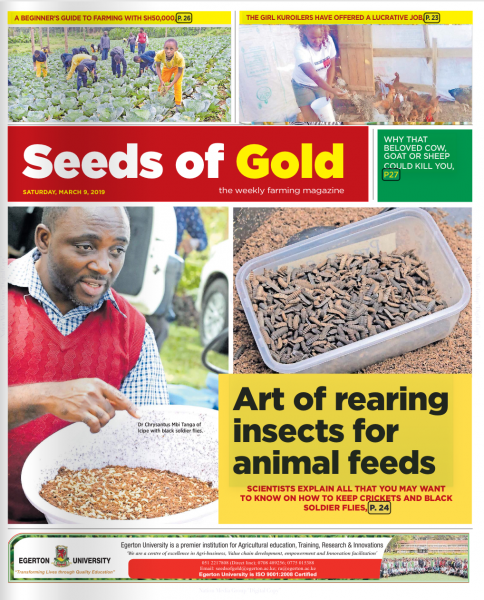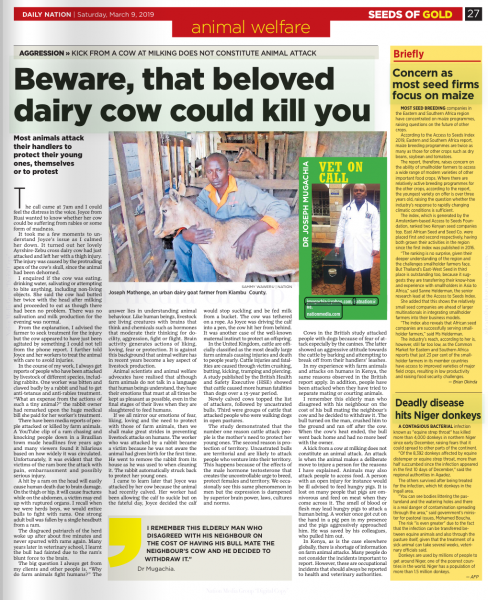Daily Nation (Kenya), Brian Okinda
MOST SEED BREEDING companies in the Eastern and Southern Africa region have concentrated on maize programmes, raising questions on the future of other crops. According to the Access to Seeds Index 2019, Eastern and Southern Africa report, maize breeding programmes are twice as many as those for other crops such as dry beans, soybean and tomatoes.
The report, therefore, raises concern on the ability of smallholder farmers to access a wide range of modern varieties of other important food crops. Where there are relatively active breeding programmes for the other crops, according to the report, the youngest variety on offer is over three years old, raising the question whether the industry’s response to rapidly changing climatic conditions is sufficient.
The index, which is generated by the Amsterdam-based Access to Seeds Foundation, ranked two Kenyan seed companies top. East African Seed and Seed Co. were placed first and second respectively, having both grown their activities in the region since the first index was published in 2016.
“The ranking is no surprise, given their deeper understanding of the region and the challenges smallholder farmers face. But Thailand’s East-west Seed in third place is outstanding too, because it suggests they are transferring their know-how and experience with smallholders in Asia to Africa,” said Sanne Helderman, the senior research lead at the Access to Seeds Index.
She added that this shows the relatively small seed companies are ahead of larger multinationals in integrating smallholder farmers into their business models. “The index also reveals that African seed companies are successfully serving smallholder farmers,” said Ms Helderman.
The industry’s reach, according to her is, however, still far too low, as the Common Market for Eastern and Southern Africa reports that just 23 per cent of the smallholder farmers in its member countries have access to improved varieties of major field crops, resulting in low productivity and raising food security challenges.








